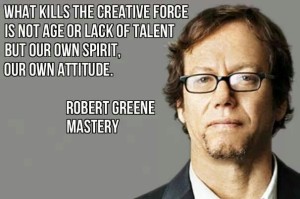Motivation
5 Success Principles We Can Learn From Floyd Mayweather

Floyd Mayweather’s rags to riches story is one we should admire.
Born and raised in Grand Rapids, Michigan, Mayweather had to overcome many obstacles to earn the right to where he is today, an undefeated world champion in Boxing; from witnessing his dad supplying drugs to his mother, clearly robbed at the 96 Olympics to having numerous criminal convictions.
Floyd: “Hardwork!”
Entourage: “Dedication!”
From his artistic jump rope routine, sharp punches on the speed bag to his renowned mitt work with his Uncle Roger. Floyd Mayweather is arguably one of the best athlete’s in the world.
Love him or loathe him, the numbers don’t lie. According to Forbes Magazine, Floyd topped ‘The World’s Top 20Highest-Paid Athletes’ in 2014, beating the likes of Christiano Ronaldo (Spanish Football), Lebron James (Basketball), Roger Federer (Tennis), without the advantage of representing a mainstream sport and sponsorships.
Many great boxers have tried to unlock the blueprint to annihilate the self proclaimed ‘TBE’ (The Best Ever). All 47 have failed.
A smart boxing practitioner, Floyd has proven time and time again, he can always adapt to his opponent by displaying his skillful defense, followed by vigorous counter punching.
5 Success Principles We Can Learn From The Champ:
1. Mastery
Dominating the sport of boxing for over 15 years takes some serious delayed gratification. From a very young age, Mayweather had consistently made choices which limits the ability of getting something quick, for the path of being able to achieve something bigger and better.
Backed by his desirable work ethics as though he never gets tired, he can spend the early unpredictable hours in a fitness gym, before tearing down the heavy bag with over 10,000 punches the following day.

‘Do you think I gave up my whole life just to say there’s someone better than me out there? Absolutely not.’ – Floyd Mayweather
2. Self Resilience
Mayweather picked up a bronze medal at the 96 Olympics in Atlanta, after a controversial lose against a Bulgarian boxer, Serafim Todorov. Also at the beginning of his professional career, he was without his trainer and father Floyd Mayweather Senior who was imprisoned for drug trafficking.
Many obstacles could off halted the champ’s success, yet he managed to come out on top.
Although known to have a ‘big mouth’, Floyd never fails to back it up from setting the three biggest non-heavyweight pay-per-view events in the sport’s history to defeating undefeated champions (at the time), most notably Ricky Hatton.
Mayweather Vs Hatton fight:
In one interview, a subject was brought up about his unfair demands before inking a fighting deal. Without hesitating, Mayweather spilled out a reminder on how he (as the underdog) respected whatever Oscar De La Hoya requested before their match up back in 06.
The interviewer swiftly moved on, reminiscing the aftermath.
3. Gratitude
On camera, Mayweather never forgets to mention how thankful he is to God, family and friends, and acknowledges his success all comes down to his loyal team.
Run a search on a lot of other boxers today, and you’ll likely find the amount of trainers, hand wrap specialists, strength and condition coaches they’ve dumped and moved on from over the years.
“Acknowledging the good that you already have in your life is the foundation for all abundance.” – Eckhart Tolle
Although he may be the celebrity in the camp, Floyd is open to invest time and money for his people, if they’re up for exploring entrepreneurial opportunities in their own rights.
“Floyd Mayweather must love himself first, before I can love anyone else.”
4. Freedom
A man brought up with the love of money, influenced by his father who used to bring home hard chunks of cash from street dealing, Mayweather is never shy of exposing his daily spendings and wins from gambling.
However, being smarter with his investmens, he’s aware of the amount of boxers and other athletes out there who eventually become broke, even after earning over 8 figures in their sport.
He broke the rules. Deciding he no longer wanted to have someone above him making the decisions, he left Top Rank and started up his own company, Mayweather Promotions. A risk many boxers wouldn’t dare to step in, Floyd hired a smart businessman (Al Hayman) to plan out strategic moves.
Thankfully it’s paid off. Every fight announced, Mayweather is in control of the finance. He takes 100% of the revenue, continues to build a reputation for his promotions and he is even in charge of paying his opponent.
From this, he’s managed to leverage and monetise his ever-growing business portfolio (Filthy Rich music records & The Money Team clothing).
5. Law of Attraction
The intention was never to seek external validation. Floyd’s successful career attracted Hollywood actors, rock stars and billionaires…most notably, Warren Buffett, the richest investor in the world who visited the Mayweather gym in Vegas.
It’s not a surprise these days to see an A-list actor like Eddie Murphy show up just to catch a glimpse of the champ working his craft. For once, it’s a great chance for celebrities to be out of the lime out.
It’s not bragging and boasting, the proof is in the pudding.
I’m a big fan of Pacquiao, but I have to say Mayweather should have it in the bag. There’s a ton of pagans who will never respect the undefeated champion but will certainly be curious about this incredible match up. Even people all over the world who aren’t boxing fans are ecstatic about this.
Let’s see what happens on May 2nd!
Who are you picking?
Did You Know
7 Surprising Life Lessons Video Games Taught Me That School Never Did
Want to get better at something? Study the pros. That applies to both life and video games

If you play video games, you’ll quickly discover you’re not alone. You’ll meet people who share your interests, challenge your skills, and even teach you something new about yourself. I started gaming when I was 10. A classmate invited me to play after school, and I was hooked. (more…)
Featured
The Psychology of Motivation: How to Keep Moving Forward Every Day
Discover how daily habits, self-discipline, and a few clever strategies can spark your drive and focus.

You wake up on a typical Monday morning, glance at your clock, and realize it’s time to get moving. How do you summon that inner drive to deal with your responsibilities with a genuine smile on your face? (more…)
Motivation
From Couch Potato to Go-Getter: A Step-by-Step Motivation Plan for Everyone
By understanding what motivates you, you can turn your dreams into reality

Are you tired of feeling like a couch potato? Do you want to transform your life and become a go-getter? You’re not alone! Many people struggle with motivation, but the good news is that change is possible. (more…)
Motivation
Why You’re Failing to Achieve Your Goals and How to Fix It Now
Understanding motivation is crucial because it’s the cornerstone of success

Feeling stuck? Lost in a sea of goals, but lacking the drive to pursue them? It’s time to shift gears and reignite your motivation! Picture this: From stalled to soaring, your journey awaits. (more…)
-

 Success Advice3 weeks ago
Success Advice3 weeks agoThe One Mindset Shift That Made Me Irreplaceable At Work
-

 Scale Your Business4 weeks ago
Scale Your Business4 weeks agoWhy Smart Entrepreneurs Never Skip This One Business Expense
-

 Success Advice3 weeks ago
Success Advice3 weeks agoHow Playing by the Rules Became the Smartest Business Strategy
-

 Did You Know2 weeks ago
Did You Know2 weeks ago7 Surprising Life Lessons Video Games Taught Me That School Never Did
-

 Success Advice2 weeks ago
Success Advice2 weeks agoHow to Build Trust, Kill Micromanagement, and Lead a Team That Thrives
-

 Scale Your Business2 weeks ago
Scale Your Business2 weeks agoHow to Build a Workplace People Actually Want to Show Up To
-

 Success Advice2 weeks ago
Success Advice2 weeks agoSuccess Isn’t Sexy: 5 Daily Habits That Actually Work
-

 Scale Your Business2 weeks ago
Scale Your Business2 weeks agoHow Smart Entrepreneurs Cut Financial Chaos in Half with One Simple Switch






























7 Comments